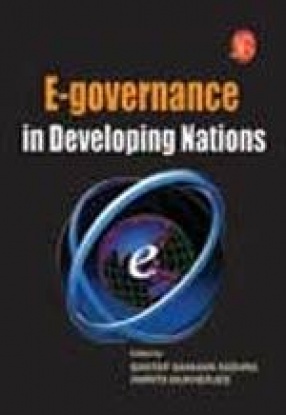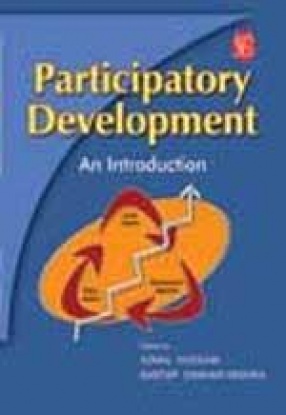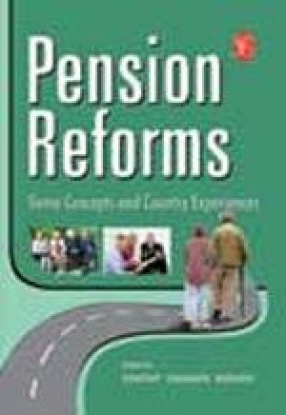
Santap Sanhari Mishra

Showing all 13 books




Preferential trade agreements (PTAs) are accord among a set of countries involving preferential treatment of trade between any two parties to the agreement relative to their trade with the rest of the world. Preferences, however, need not extend to all trade between the two, and the coverage could depend on the type of PTAs. Customs unions and the so-called free trade areas are common forms of PTAs. PTA is established through trade pact and it is the weakest form ...

Public-Private Partnerships (PPPs) have emerged the world over as an important policy tool for the provision of a host of infrastructure, starting from economic to social infrastructure. Governments in both developing and developed countries are adopting PPPs. While in developed countries they are in an advanced level, but in case of developing countries they are being adopted albeit a bit cautiously. Basically, PPPs are arrangements whereby public goods are ...

In modern welfare states, the aim of the Government is to provide good governance. But, corruption on the part of policymakers and government officials is a great hindrance in achieving good governance. In fact, corruption reigns supreme everywhere, including private sector. This hydra-headed concept has brought irreparable damage to both society and economy of a majority of nations, and is now threatening to engulf the world completely. It is true that ...

In modern welfare states, the aim of government is to provide good governance. But it does not mean that government will be overburdened. Again, good governance, which is the maximum development for majority population should be the ultimate end. So the rolling back of the state from major sectors is a viable alternative for effective socio-economic development. This retreat of state has opened floodgates for Non Governmental Organizations (NGOs). It is to be ...

1. Build-Operate-Transfer: Models, Issues and Emerging Trends, 2. Build Own Operate Transfer (BOOT) Projects, 3. Public-Private Partnerships: The Next Generation of Infrastructure Finance, 4. Evaluation of Build-Operate-Transfer (BOT) Project Opportunities in Developing Countries, 5. Build-Operate-Transfer: The Modality of Public Construction, 6. Government Role in BOT Projects: An Overview, 7. BOT Contract Projects: A ...

In modern welfare states, the aim of government is to provide good governance. But it does not mean that, government will be overburdened. Again, good governance, which is, maximum development for majority population should be the ultimate end. So the rolling back of the state from major sectors is a viable alternative for effective socio-economic development. This retreat of state has opened floodgates for Civil Society Organizations (CSOs). In an ...

Government is a machinery or institutional arrangement for exercising the sovereign power, while governance is the process as well as the result of taking authoritative decisions for the benefit of society. If the governance does not bring maximum benefits for maximum number of people, it results into mal-governance. In a welfare state, the aim is to be good governance; a number of ways are there to achieve that. E-governance is the most suitable one, which can ...

Consolidation of banks is the means for growing economies towards improving the efficiency and reforming the structure of the banking industry in accordance to the contemporary requirements of corporate culture, ownership patterns, profitability and diversifications. Deregulation measures as a result of liberalization and globalization have resulted in increasing competition. This forced the banking industry to go for restructuring and reframing. Profit ...

Participatory approach to development has emerged mainly because of recognition of the limitations of the conventional approach. The major limitation of conventional approach is that it does not necessarily hold all the stakeholders accountable. Participatory approach involves local people, development agencies, and policy makers, deciding together how progress should be measured, and results acted upon. It can reveal valuable lessons and improve accountability. ...

Pension provides not only old age security but also resistance against many problems. A good pension policy marks the welfare-centric approach of a government. But the changing socio-economic environment, particularly low fertility rate and high life expectancy rate combined with financial crunch has forced the government to think over the sustenance of the pension sector. No government can dare to avoid the provision of pensions to its citizens and on the other ...

E-democracy is about the application of Information and Communication Technologies (ICTs) for the enhancement of democratic processes. It is actually very difficult to define e-democracy. It is a new concept subject to a number of discussions and debates. The term 'e'democracy' was coined in 1994 by a Minnesota based project in US, and since then, a number of countries have experimented with the e-democratic processes. E-democracy is a form of politics, based on ...

Throughout the world, almost all poor people live in rural areas and they depend mainly on agriculture and allied activities for their livelihood and overall well-being. So, rural development is the utmost need for improvement of their living standard. Rural development refers to the structural change in the socio-economic situation to achieve improved living standard of low income population residing in rural areas and making the process of their development ...

Just-in-Time (JIT) is a management philosophy catering to the needs of global consumerism. By definition, JIT is an inventory strategy with the principal objective of reducing in-process inventory and eliminating waste and associated costs through different operational activities. Historically, JIT was implemented in a manufacturing organization. However, implementation of JIT entails a number of problems like leaving the suppliers and downstream consumers ...
